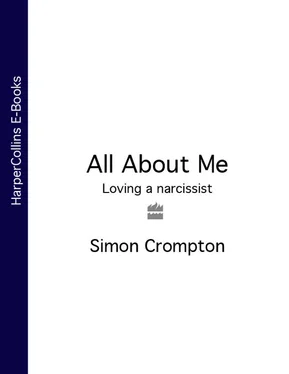There are dangers in addressing a subject like this. As a journalist, I’m very aware of how easy it is to label people for the sake of convenience. There’s an increasing tendency among popular psychoanalysis and psychology to force human nature into boxes neatly labelled ‘personality type’. There’s another, and linked, tendency for doctors, psychiatrists and drug manufacturers to try to turn personality traits into illnesses. Once we were just a ‘type’, now we have a diagnosis. There are lots of examples. Many thousands of children are now being diagnosed with ADHD (attention deficit hyperactivity disorder), which was unheard of 30 years ago. Some people are controversially saying that the condition doesn’t really exist. It’s simply what a few decades ago would have been classified as ‘wilfully naughty children’, they say. The children haven’t changed, but our attitude to them has.
There is a similar controversy raging over autistic spectrum disorders – some are claiming that many of these conditions, such as Asperger’s Syndrome, are not disorders at all – merely different manifestations of ‘maleness’.
These are difficult areas. But whatever you believe about ADHD and autism, it’s certainly true that a large number of drug companies are now trialling drugs designed specifically to combat all sorts of behavioural traits that until recently most of us would simply have regarded as all being on the continuum of ‘normal’: stress, shyness, anxiety, phobias, gambling, impulsive behaviours – even addiction to the internet.
I don’t want to do the same kind of thing for narcissism or suggest that something which up to now has been regarded as a human trait of selfishness should become a formal tag to put onto people willy-nilly. But seeing patterns in relationships and the way we conduct our lives helps us to overcome problems, and talking about narcissism can help us understand some of the people in our lives and some of the pitfalls in our own behaviour that can make us more vulnerable to them. It helps us to identify when we are the victims of narcissism, and ways we can assist each other to break out of destructive, self-centred cycles. It also helps identify the small number of people who need expert psychiatric help because they have a genuine personality disorder.
So forgive me if I use the tags ‘narcissist’ or ‘narcissistic personality’ in the following chapters. I’m not suggesting that the people being referred to are only narcissists, or that they don’t have many other characteristics too. Humans are an intricate bundle of motivations and behaviours. But I hope to make it clear that in some people, narcissistic traits are sufficiently character-defining for us to have justification in calling them narcissists.
You’ll see in the next chapter that the word has a long history of describing human characteristics, from Greek myth, via Freud, into modern psychiatric textbooks and popular usage. That makes it different and arguably richer than other, simpler human personality traits such as, say, ‘anger’ or ‘selfishness’. What’s more, there’s an increasing consensus that the causes of narcissism lie in the way we are brought up. It raises fascinating questions about parenting, and the interaction between our genetic make-up and our environment in conditioning our personality.
The book also deals with how narcissism has affected relationships, how different individuals have coped, and some of the coping strategies you can try to implement if narcissism is having a negative effect on your life. You’ll read in the chapters ‘I’m a celebrity narcissist’ and ‘Generation me’ about the dangers we all face as we are unwittingly drawn into a cult of narcissism, where the selfish and self-obsessed values that create narcissists are also being promoted as desirable and glamorous in our popular culture.
I started out writing a book because I was intrigued about the men who seemed to succeed at everything, and I ended up writing a book not just about them, but about all of us. About the vulnerability that can make us behave in strange and difficult ways, and which leaves us susceptible to the charms of those who will make life most troublesome for us. Like the tale of Narcissus itself, it’s a very human story. Anyone who has ever felt used by the one they love, anyone who feels that others have needed them merely to prop up their ego, and anyone who has ever been humiliated in a relationship should read on …
Конец ознакомительного фрагмента.
Текст предоставлен ООО «ЛитРес».
Прочитайте эту книгу целиком, купив полную легальную версию на ЛитРес.
Безопасно оплатить книгу можно банковской картой Visa, MasterCard, Maestro, со счета мобильного телефона, с платежного терминала, в салоне МТС или Связной, через PayPal, WebMoney, Яндекс.Деньги, QIWI Кошелек, бонусными картами или другим удобным Вам способом.












